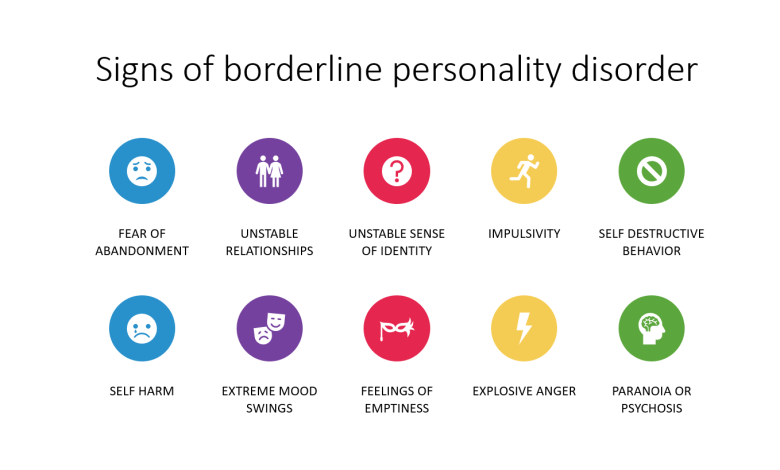The Most Destructive Habits and Their Toll on Your Body

At some point, everyone may have done self-destructive things for various reasons. Self-destructive behavior is actions people do towards themselves that may cause harm physically and mentally. Such actions can be done intentionally or not. Many people develop destructive behaviors primarily because they do not know they can harm them, and they find a feeling or emotion they need from it.
When done repeatedly— unconsciously or intentionally — some destructive behaviors can become habits. They become part of your life, making it difficult to change or disengage from.
In most cases, the effects of negative and destructive habits reflect in your overall well-being — your physical health, mindset and quality of life you have. Here are some of the most destructive habits one may have and how they affect the body:
Negative Self-Talk
Your self-talk affects how you view the world and yourself. It influences how you react to what is happening around you. So talking to yourself negatively can bring you down and affect your quality of life. It can demotivate you and stop you from actually realizing your potential.
If negative self-talk has become your habit, enjoying life will be very difficult. It can affect how you do everyday things, both in your personal and work life. Always feeling conscious of yourself, your actions, looks or way of speaking can impact your self-esteem.
Sometimes, people who see themselves negatively tend to withdraw from relationships and lose the desire to socialize as well. It can significantly affect one’s mental health and trigger anxiety and depression, among other emotional and psychological distress.
Talking to yourself negatively should not be seen as a motivator for you to do better. You must be your biggest fan and supporter. Taking care of yourself also means taking control of your thoughts and choosing the positive ones that can help you improve. Stopping the habit of negative self-talk can take a bit of practice, but is definitely possible with your own perseverance as well as support from people who care for you.
Substance Abuse
Substance abuse is a behavioral pattern where someone uses drugs or alcohol to the point that it damages their health and life. It often develops from seeking some sort of pleasure or relief. Substances like drugs and alcohol contain chemicals that affect the brain.
For some, such sense that these chemicals help them deal with life’s daily challenges or cope with mental and emotional distress. These substances are not only limited to alcohol or drugs such as heroin and cocaine. Prescription and over-the-counter medications, like painkillers (narcotics or opioids), as well as stimulants and depressants, may become addictive as well.
Substance abuse can further develop into chemical dependency and addiction, wherein the usage of substance advances causes more complications. People developing dependency may feel the need to increase their intake to get the same effect. In some instances, it has become a part of their life, and they perceive it as something they cannot live without.
People with serious cases of substance abuse and addiction are diagnosed with substance abuse disorder, which may require medical treatment and rehabilitation. If you or someone you know is suffering from substance abuse disorder, various rehabilitation centers across the country can provide the help you need. Specialized treatments such as benzodiazepine treatment in New Jersey and other states can provide dedicated care to even specific substance abuse cases.
Binge-Eating
Food is associated with many human emotions. People eat for various reasons — celebrating, re-energizing, relieving stress, and coping with heavy emotions. Cravings are also often related to what someone feels. Some people resort to binge eating to cope with negative emotions, as it is the only way to make them feel good and happy again.
Eating large amounts of food to relieve stress or cope with negative emotions can develop into a bad habit and even serious health problems. It can advance into a binge-eating disorder, where someone can no longer control the amount of food they intake.
Binge eating can cause both mental and physical health issues. It can lead to rapid weight gain and can cause complications like hypertension, heart problems and diabetes. It is important to moderate everything, including food intake. It is always best to have a balanced diet and just stay hydrated to regulate your mood rather than trick your brain with too much food.
Compulsive Activities
Humans are wired to seek thrill, to look for new things to discover and find joy or pleasure in that new experience or discovery. Hence, many people find compulsive activities engaging and enjoyable. Things like gambling and shopping can be a form of leisure and can help produce dopamine, a neurotransmitter that is also called the “reward center.” Whenever you win or get something, you feel a sense of pleasure, and that is dopamine being produced in your brain.
This sense of elation can become addictive. The occasional gaming and shopping can become compulsive habits that can cause various problems across aspects of your life, including physical and mental health and your finances.
Compulsive activities make you think you find happiness in them while you’re actually stuck in a loop. You seek a reward; you get it. But it is not the reward that makes you happy; it is the thrill of getting it, and the sense of achieving it. Once it fades, you will seek that feeling again, regardless of how much of that reward you already have.
It is important to be mindful of your actions and habits, even the things you do for leisure. Finding a deeper sense and purpose in your life can help you avoid engaging in compulsive activities and developing bad habits. Acknowledging negative behavior and habits is also necessary to take the right action and make the change within yourself.
Put a Halt to Destructive Behaviors
Having destructive habits can make you feel stuck. It can be painful and dangerous simultaneously, as it can cause complexities and problems that can be difficult to overcome. The first step to changing destructive habits is acknowledging them and recognizing that it causes harm to you or the people around you. Knowing how different habits affect your well-being and your life can also help you better understand why you need to stop self-destructive behaviors.
Proactively check your habits and the things you constantly do, even unintentionally. Upon the first signs of destructive behavior, you must recognize and address them right away. If you or someone you know is suffering from self-destructive habits, it is also best to seek professional help for accurate and effective interventions.
Apart from this, if you are interested to know more about Appreciates You Working From Home then visit our Digital Marketing category


